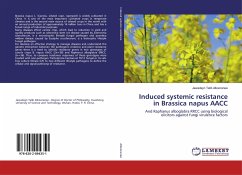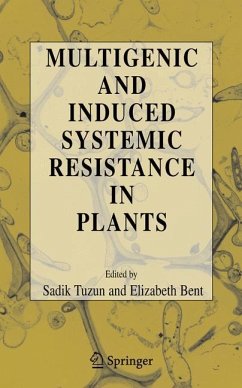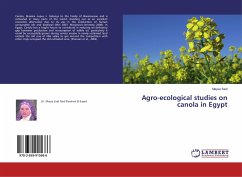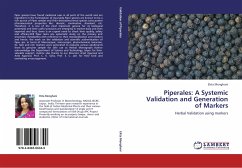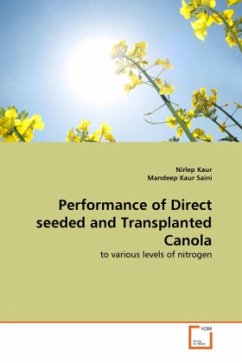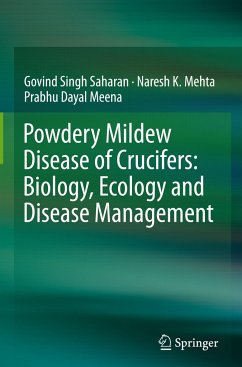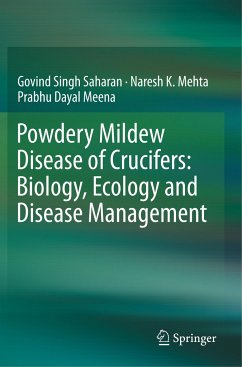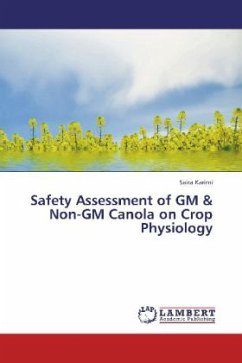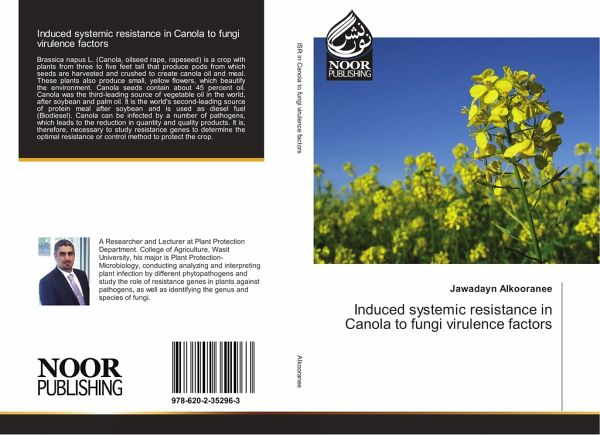
Induced systemic resistance in Canola to fungi virulence factors
Versandkostenfrei!
Versandfertig in 6-10 Tagen
33,99 €
inkl. MwSt.

PAYBACK Punkte
17 °P sammeln!
Brassica napus L. (Canola, oilseed rape, rapeseed) is a crop with plants from three to five feet tall that produce pods from which seeds are harvested and crushed to create canola oil and meal. These plants also produce small, yellow flowers, which beautify the environment. Canola seeds contain about 45 percent oil. Canola was the third-leading source of vegetable oil in the world, after soybean and palm oil. It is the world's second-leading source of protein meal after soybean and is used as diesel fuel (Biodiesel). Canola can be infected by a number of pathogens, which leads to the reduction...
Brassica napus L. (Canola, oilseed rape, rapeseed) is a crop with plants from three to five feet tall that produce pods from which seeds are harvested and crushed to create canola oil and meal. These plants also produce small, yellow flowers, which beautify the environment. Canola seeds contain about 45 percent oil. Canola was the third-leading source of vegetable oil in the world, after soybean and palm oil. It is the world's second-leading source of protein meal after soybean and is used as diesel fuel (Biodiesel). Canola can be infected by a number of pathogens, which leads to the reduction in quantity and quality products. It is, therefore, necessary to study resistance genes to determine the optimal resistance or control method to protect the crop.



